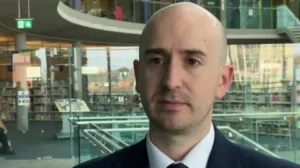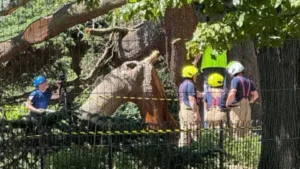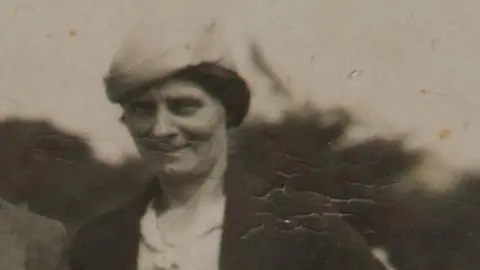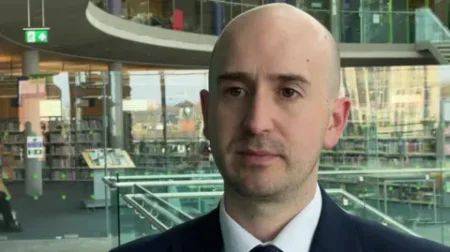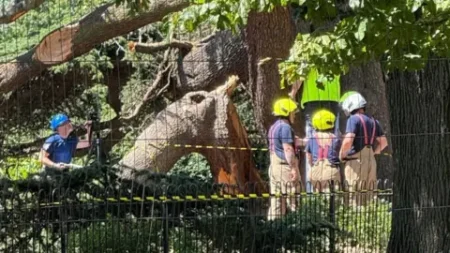In a significant development within the realm of British criminal justice, a 92-year-old man named Ryland Headley has been found guilty of the brutal murder and rape of Louisa Dunne, a woman from Bristol. The case, often referred to as the “UK’s oldest cold case,” remained unsolved for an astonishing duration close to six decades. This conviction came after a trial at the Bristol Crown Court, which underscored the relentless pursuit of justice for Dunne, who was tragically found deceased in her own home.
On June 28, 1967, Louisa Dunne, a 75-year-old widow known for her vibrant presence in the Easton neighborhood of Bristol, was discovered by a neighbor, laying lifeless on her living room floor. Initial investigations failed to lead to a conclusive identification of her murderer, leaving the community reeling and the case lingering unresolved for decades. It wasn’t until a momentous review of the case in 2023 that led to significant breakthroughs, drawing upon advanced DNA evidence to link Headley to the heinous crime.
The senior investigating officer on the case, Detective Inspector Dave Marchant, characterized Headley as “predatory,” emphasizing that his past behavioral pattern signaled a dangerous individual, with previous crimes resonating with the tragic details of Dunne’s murder. At the time of the incident, Headley was in his thirties; however, the decades that followed saw him face numerous other legal issues. This conviction serves not only to deliver justice for Dunne’s family but also illustrates how advancements in forensic science can aid in solving even the most perplexing cold cases.
Louisa Dunne had led a life marked by hardship, having been widowed twice prior before her untimely death. She was reportedly well-liked and respected within her local community, which added an additional layer of grief for residents upon learning of her murder. The investigation depicted Headley as having forced entry into Dunne’s home before committing the violence that ultimately claimed her life. The meticulous nature of the inquiry revealed that her murder was both violent and premeditated.
As Headley awaits sentencing, which is scheduled for the following Tuesday, the ramifications of this case extend beyond just the legal verdict. It represents the tenacity of law enforcement in seeking justice, the emotional toll taking its course over years, and the essential role that modern forensic advancements play in unraveling historical crimes. This case has been prominently highlighted, with Det. Insp. Marchant drawing attention to it as a “marrying of old school and new school policing techniques,” indicative of a gradual evolution in criminal investigations.
The official closure of this long-standing mystery has provoked a multitude of responses from the public and the media. It serves as a somber reminder of the fragility of life and the impact that severe crimes have on communities. Beyond the legal implications, the case of Louisa Dunne signifies a crucial step in recognizing and addressing historical injustices within the UK’s criminal justice system.
In conclusion, the conviction of Ryland Headley marks a poignant moment in not just the life of Louisa Dunne’s family but also appeals to the broader society’s sense of justice. It harnesses hope and determination in solving cold cases and reinforces belief in the persistent pursuit of truth. Such events echo across generations, reminding individuals that justice, however delayed, can still unfold many years after the fact.

